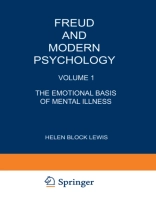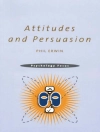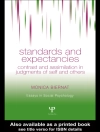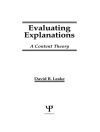The tension between Freud’s clinical discoveries about the power of human emotions and the theoretical framework in which he embedded these discoveries has been most eloquently detailed by Freud himself. His agoniz- ing reappraisal. in 1926, of the libido theory of anxiety is just one example. But, as is usually the case, theoretical difficulties point to gaps in existing knowledge. At the time when Freud made his fundamental discovery that hysterical symptoms (and dreams) were understandable as reflections of for- bidden ("strangulated") affect, anthropology was essentially nonexistent as a science. The cultural nature of human beings (our species’ unique adaptation to life) could only be adumbrated by Freud (for example, in the myth of Totem and Taboo). As a consequence, the primacy of human attachment emotions in the acculturation process could not be postulated as a theoretical base. What Freud adopted as his base of theorizing was the most forward- looking materialist concept of his time: the Darwinian concept of individual instincts as the driving force in life. Freud assumed that the vicissitudes of in- stincts determine the fate of "ideas" in consciousness. Freud’s theoretical base thus impelled him to speculate about the origin and fate of ideas instead of about the origin and fate of human emotional connectedness. This book is a small step along the road which should ultimately bring Freud’s discoveries into a modem theoretical framework in psychology.
Helen Lewis
Freud and Modern Psychology [PDF ebook]
Volume 1: The Emotional Basis of Mental Illness
Freud and Modern Psychology [PDF ebook]
Volume 1: The Emotional Basis of Mental Illness
Mua cuốn sách điện tử này và nhận thêm 1 cuốn MIỄN PHÍ!
Ngôn ngữ Anh ● định dạng PDF ● ISBN 9781468438123 ● Nhà xuất bản Springer US ● Được phát hành 2013 ● Có thể tải xuống 3 lần ● Tiền tệ EUR ● TÔI 4723101 ● Sao chép bảo vệ Adobe DRM
Yêu cầu trình đọc ebook có khả năng DRM












